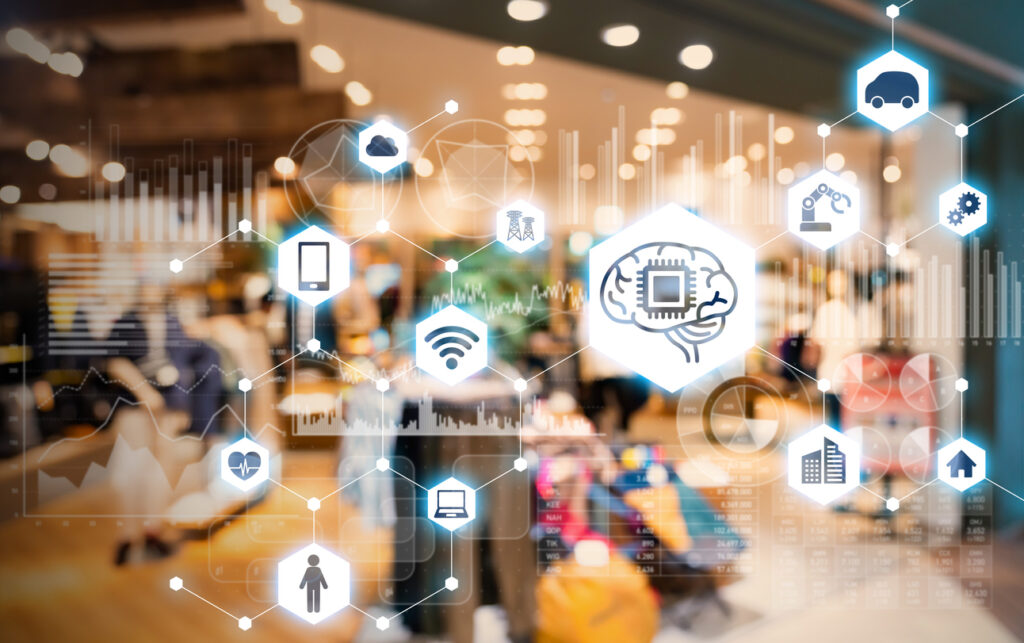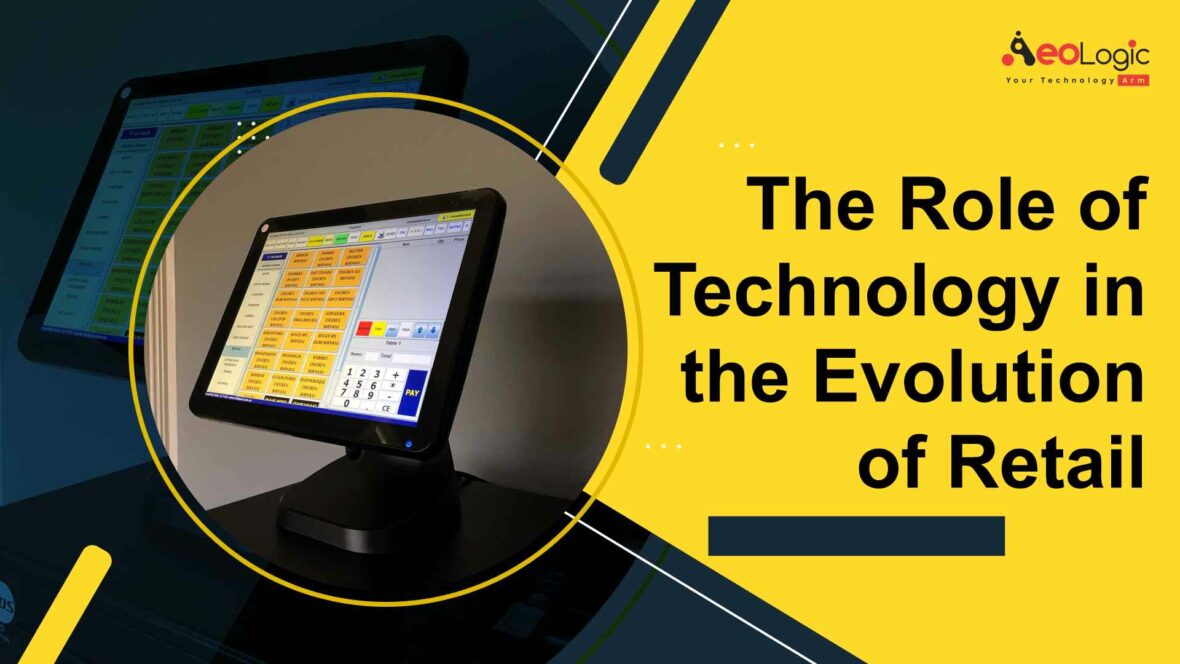It would be an exaggeration to say that technology is transforming retail. Technology is not only transforming retail; it has entirely revolutionized the way we shop. This evolution process is never-ending. The COVID-19 pandemic has presented several issues for retailers, and technology is resolving all those challenges. In this blog, we will analyze the role of technology in the evolution of retail.
Let’s begin!
Overview of Retail Technology
“Retail Technology” refers to solutions that assist retailers to enhance their operations. So, these advanced technologies assist retailers in increasing their sales. Technology is transforming the way we do business.
Industries are entirely going to change the way they offer their services. The industries are moving away from archaic techniques and toward modern technology for the majority of their needs. Technology has become an urgent requirement in order to keep up with our fast-paced society. So, there are many industries that have changed a lot because of new technology, like the retail industry. Technological advancements have undoubtedly aided in the resolution of many of the issues associated with running a retail business.
Also read: Remote Sensing Role in Emergency Mapping for Disaster Response
Top 4 Technology in the Evolution of Retail Industry

Today, technology is more important than ever to the success of retailers. In order to stay competitive, retailers must embrace new technologies and find ways to use them to their advantage. Some of the most important technologies for retail today include:
1. Mobile commerce: Mobile commerce, or m-commerce, refers to the buying and selling of goods and services via mobile devices such as smartphones and tablets. M-commerce is one of the fastest-growing segments of e-commerce, with billions of dollars in sales each year.
2. Social media: Social media platforms like Facebook, Twitter, and Instagram have become essential marketing channels for retailers. These platforms allow retailers to connect with customers, promote their products and services, and generate buzz about their brand.
3. Big data: Big data refers to large sets of data that can be analyzed to reveal trends and patterns. Retailers are using big data to better understand their customers and make more informed decisions about everything from pricing to product assortment.
4. Cloud computing: Cloud computing allows businesses to store and access data and applications on remote servers instead of on local ones.
How Technology has Impacted the Retail Industry
Here are a few examples of how technology has impacted the retail industry:
Supply Chain Management
Technology has had a significant impact on supply chain management, in terms of service. The use of technology has made it easier for retailers to keep track of their supply chains. These include real-time delivery, cross-docking, and third-party logistics.
No Need for Cashiers
Retail stores must pay additional money for utility bills to maintain and operate the store. Hence, retailers can now conduct their operations online, eliminating the necessity for cashiers. Technology has also made it easier for retailers to keep track of their accounts. Retailers may now maintain all of their business in one place thanks to cloud systems and online booking.
Also read: Benefits of 5g in Industrial Environments
Make a Quick Purchase!
The technology made it possible for customers to browse products and buy online instead of visiting to go to one physical store.. . As a result of technological advancements, users can now read reviews and purchase products from a variety of sources on the internet.
Customer Feedback
Retailers can now keep a close eye on customer trends, which also allows them to figure out which products are most popular with customers. Because you can communicate directly with customers via live chat, you can better understand their views. It also assists retailers in better understanding what their customers want and don’t want. Analytics can also show retailers what their customers are like, which helps them better focus and try to appeal to them. Here we can see the best role of technology in the evolution of retail.
People who are familiar with the marketing trends can use technology to better understand their market. Technology assists retailers in pricing their own products by looking at other markets.
Also read: Role of Private 5G Networks in Industry 4.0
Take it To the Next Level!
Technological advancement has made the world more like a small town, where people can share their knowledge, experiences, and more. With technology, people can look at your store and order your products from all over the world. So, This lets retailers grow their businesses and work all over the world without having to set up shop there. Thus, these are the role of technology in the evolution of retail.
Big Purchases Through Their Phones
A lot has changed in retail because customers can now shop from the comfort of their own home or any other place. Now businesses are open 24 hours a day, instead of only from 9 to 5. Consumers may make large purchases using their little smartphones, making it extremely convenient for the vast majority of consumers.
Also Read: Agriculture Website Designing To Increase Your Agri-Business
FAQ’s
How has the Internet changed the way people buy things for sale?
People can now connect with retailers and express their brands in new ways thanks to the internet. So, Physical stores have become part of their communication and sales strategy, not the only or main way they reach people.
What impact has technology had on the retail industry?
Technology has added a new dimension to the retail industry. The development of point-of-sale devices, bar codes for invoicing, and payment databases has made large setups much easier to operate.
What impression has modern technology had on the retail industry?
Customers’ buying journeys are being shaped by digital devices. It helps consumers in making better decisions. It also allows retailers to assist customers and obtain relevant data for buying products.
What does a retail model involve?
A retailer’s business model describes how it creates value for customers and appropriates value from markets.
Related Blogs:
- How AI/ML Can Change the Public Transportation Industry
- Transforming Business With Digital Technology in the Oil Palm Industry in India
- Importance of Digital Asset Management in the Retail Industry
- How AI is Transforming the Agriculture Industry
- 10 Ways to Use Artificial Intelligence to Improve Business Processes
- The Future of IoT Technology in Convenience Stores
- Building Manufacturing Resilience Through AI and ML






